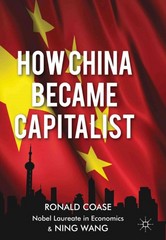Question
1.)Explain how a model has helped you solve a problem. Define the model and explain the problem it helped solve. 2.)Use the space below to
1.)Explain how a model has helped you solve a problem. Define the model and explain the problem it helped solve.
2.)Use the space below to draw a circular flow diagram.
3.)Explain how a decision you made would have been different had one or more of the ceteris paribus assumptions involved been different.
4) Explain the opportunity cost of a decision you made.
5) Ben works part-time as a waiter and makes $80 a day. He is considering flying to Florida to visit his brother, but he
would have to take two days off from work. The price of the flight is $240. What is Ben's total economic cost of the trip?
a. $160
b. $240
c. $320
d. $400
In the question above, which part of the cost is the accounting cost? What is the opportunity cost?
Now, suppose Ben decides to drive to Florida instead. He will spend $75 on gas. What is Ben's marginal cost of extending his vacation by 1 day?
6) Explain how marginal analysis can be used to determine the "correct" amount of time to spend studying for an exam.
Make sure to explain the role of rising marginal costs and declining marginal benefits in your decision. Why might the
"correct" amount of time to study for an exam be different for different students?
7) Marginal analysis implies that people make choices
a. by comparing the total benefit to the total cost.
b. by comparing the average benefit against the average cost.
c. by comparing the additional benefit against the additional cost.
d. by considering the opportunity cost.
8) Fill in the table below and graph the total benefit and marginal benefit curves of cups of coffee per day. (PLEASE SEE PICTURES OF GRAPH)
Based on the graphs, how many cups of coffee should be purchased if the price of a cup of coffee is $1.25. Why?



Step by Step Solution
There are 3 Steps involved in it
Step: 1

Get Instant Access to Expert-Tailored Solutions
See step-by-step solutions with expert insights and AI powered tools for academic success
Step: 2

Step: 3

Ace Your Homework with AI
Get the answers you need in no time with our AI-driven, step-by-step assistance
Get Started


